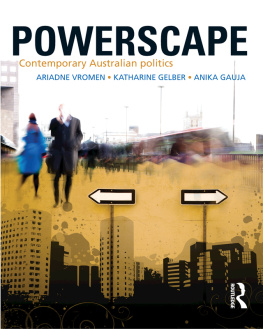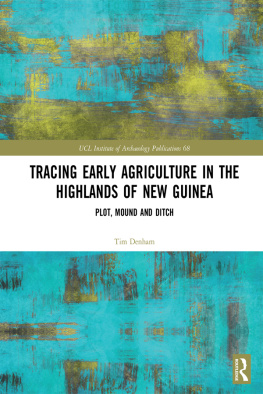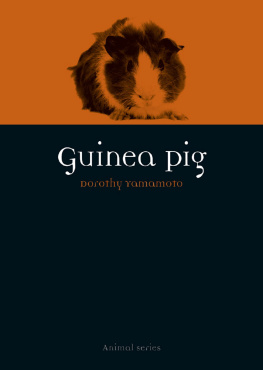Gender and Society in the New Guinea Highlands
WOMEN IN CROSS-CULTURAL PERSPECTIVE
Sue-Ellen Jacobs University of Washington, Series Editor
About the Book and Author
The societies of the New Guinea Highlands are among the last-contacted horticulturalist peoples of the world. Endemic warfare, elaborate systems of exchange, flamboyant personality styles, and exaggerated forms of antagonism between the sexes have made them a subject of interest to anthropologists for three decades. This book examines the relationship between the sexes, especially the attitudes and behavior of men toward women, as a result of the economic, political, and structural constraints of Highland social organization. Hostility toward women, which is evident in a high level of violence toward women and an articulated fear of association with them, is given special attention.
Dr. Gelber's study is unique not only because it treats gender relations in the entire culture area of the Highlands, but also because a broad array of types of anthropological analysisecosystemic, population-regulatory, economic, sociopolitical, psychological, and ideationalare considered for their relevance to the phenomenon of intersexual hostility. The author's emphasis on underlying problems of explanation and theory, as well as the treatment of attitudes and beliefs as a function of socioeconomic constraints, is a departure from previous modes of analysis and raises new issues in anthropological theory and in the study of gender.
Marilyn G. Gelber received a Ph.D. from Harvard University and has worked as a consultant anthropologist for the World Bank.
Gender and Society in the New Guinea Highlands
An Anthropological Perspective on Antagonism Toward Women
Marilyn G. Gelber
First published 1986 by Westview Press, Inc.
Published 2018 by Routledge
52 Vanderbilt Avenue, New York, NY 10017
2 Park Square, Milton Park, Abingdon, Oxon OX14 4RN
Routledge is an imprint of the Taylor & Francis Group, an informa business
Copyright 1986 Taylor & Francis
All rights reserved. No part of this book may be reprinted or reproduced or utilised in any form or by any electronic, mechanical, or other means, now known or hereafter invented, including photocopying and recording, or in any information storage or retrieval system, without permission in writing from the publishers.
Notice:
Product or corporate names may be trademarks or registered trademarks, and are used only for identification and explanation without intent to infringe.
Library of Congress Cataloging-in-Publication Data
Gelber, Marilyn G.
Gender and society in the New Guinea Highlands.
(Women in cross-cultural perspective)
Bibliography: p.
Includes index.
1. WomenPapua New Guinea. 2. Sex rolePapua New Guinea. 3. Interpersonal conflictPapua New Guinea 4. Papua New GuineaSocial life and customs. 5. EthnologyPapua New Guinea. I. Title. II. Series
GN671.N5G45 1986 305.4'2'09953 86-11190
ISBN 13: 978-0-367-01134-5 (hbk)
In memory of my grandmother, Celia Marienstrauss Propper.
For their assistance with unpublished data, I would like to thank Bruce Taylor, Patsy Klaus, and Anita Timrots of the Bureau of Justice Statistics, U.S. Department of Justice.
Sections of the book were benefited by discussion with Leo Goldenberg, Gary Gelber, and Abraham Elterman. I am grateful to them for their comments.
If Roger Wallace had not pushed me into the computer age, I would probably still be retyping the manuscript. I thank him for his friendship, his moral support, and his technical assistance.
For the latest in computer technology, and for his unfailing graciousness and good humor, I am deeply grateful to Clyde Steiner. Micheline Meneau and Christophe Meneau kindly shared their expertise in graphics software.
Of the dozens of things for which I am grateful to my husband, Gary Gelber, I thank him especially for the photographs which appear in this book, for his generosity, and for listening to the inner music.
Marilyn G. Gelber
" ... either for tragedy, comedy, history, pastoral, pastoral-comical, historical-pastoral, tragical-historical, tragical-comical-historical-pastoral ... " Polonius, Hamlet , Act II, Scene II
1
Introduction
I
"If a young woman offers you food and you eat it, your skin will become no good. You must not eat from such a woman; her hand is taboo." "If you meet a young woman, do not look at her face; if you look at her and she looks at you, then you will copulate. If you do this, something will come up all over your skin, your body will be spoilt. Hear what we say." Warrior leader of the lineage, Fore tribe, Eastern Highlands, speaking to male novices undergoing initiation ().
What gives rise to attitudes such as those expressed by the lineage leader of the Fore tribe? How can we explain their existence, and their relationship to the economic and social organization of Highland societies? And of what do the explanations themselves consist? These three questions form the structure of an inquiry into the relationship between the sexes in the New Guinea Highlands.
II
"Men [of the Mae Enga, Western Highlands] believe that the vital fluid residing in a man's skin makes it sound and handsome, a condition that determines and reflects his mental vigor and self-confidence. This fluid also manifests itself as his semen. Hence, every ejaculation depletes his vitality, and over-indulgence must dull his mind and leave his body permanently exhausted and withered" ().
Meggitt, "Male-Female Relationships in the Highlands of Australian New Guinea."
"Have you ever loved a woman ... physically loved her? There's a feeling of loss, a profound sense of emptiness. Luckily, I was able to interpret the signs correctly. It was a loss of essence ... Women sense my power, and they seek me out ... But I deny them my life essence" ().
General Jack Ripper, Dr. Strangelove, or , How I Learned to Stop Worrying and Love the Bomb.
The relationship between men and women is complex in every part of the world. As a set of structured relations between two groups of people in a society, it has a special character unlike any other, combining in one relationship economic, social structural, political, reproductive, psychological and ideational elements.
In the New Guinea Highlands, many of the structural and interpersonal tensions which characterize the relationship between the sexes in American society and in other societies present themselves in an exaggerated form. The Highlanders of New Guinea hold up not a mirror, but nearly a caricature of certain aspects of our own society, and probably for this reason, they have been a source of great fascination to anthropologists for several decades ().
Fear and disgust toward women, an intense interest in the body and its products, sometimes disguised by phobias, and a feeling that men and women are so different as to be almost two different species - these attitudes exist in a milder and more repressed way in American society, but pervade Highland society in an explicit, almost flamboyant, ), but is met with fewer sanctions in the Highlands.











